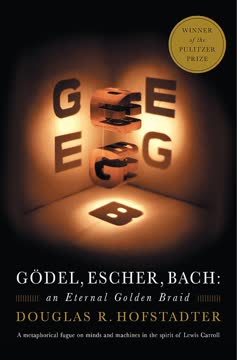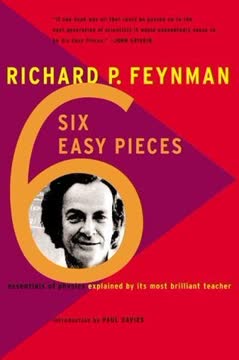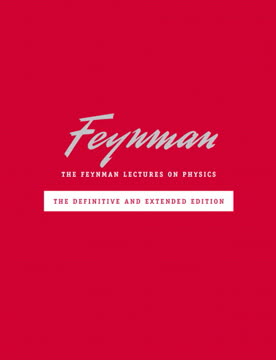重点摘要
1. 科学好奇心始于童年的奇思妙想
培养好奇心。 费曼的科学之旅始于他父亲创新的教学方法。父亲没有简单地给出答案,而是鼓励他观察、提问和探索周围的世界。这种早期的科学思维启蒙为费曼未来的工作奠定了基础。
通过探索学习。 通过探索自然和对日常现象提出问题,年轻的费曼对自然界的相互联系产生了深刻的理解。这种学习方法培养了他透过表面现象发现宇宙基本原理的能力。
2. 非传统思维引领突破性发现
挑战传统。 费曼在物理学上的成功归功于他敢于质疑既定理论和探索非传统思想的勇气。这种方法使他在量子电动力学和其他领域做出了重要贡献。
创造性解决问题。 通过从独特的角度解决问题,费曼开发了创新的解决方案和工具,如费曼图,这些工具革新了物理学家可视化和计算粒子相互作用的方式。
3. 量子电动力学:粒子相互作用的革命性理论
简化复杂性。 量子电动力学(QED)为理解光与物质在亚原子层面的相互作用提供了统一的框架。费曼对这一理论的贡献帮助简化了复杂的计算,并使实验结果的预测达到了前所未有的准确性。
实际应用。 QED在多个领域具有深远影响,包括电子和半导体技术、激光和光学技术、医学成像和治疗、量子计算和信息处理。
4. 诚信与怀疑在科学进步中的重要性
科学诚信。 费曼强调诚实和透明在科学研究中的关键作用。他倡导严格的自我审查和承认错误或不确定性的意愿。
拥抱怀疑。 质疑自己的假设并对新证据保持开放态度是科学进步的关键。费曼认为,怀疑和质疑不是弱点,而是推动科学探究前进的力量。
5. 费曼独特的问题解决和教育方法
跨学科思维。 费曼的问题解决方法常常涉及在看似不相关的领域之间建立联系。这种跨学科的视角使他能够以创新的方式解决复杂问题。
有效沟通。 作为一名教育者,费曼具有将复杂概念以简单、易懂的方式解释的非凡能力。他的讲座和著作继续激励和教育世界各地的学生和科学家。
6. 诺贝尔奖:科学家的双刃剑
认可与责任。 获得诺贝尔奖为费曼在量子电动力学方面的工作赢得了国际认可。然而,这也带来了更高的期望和公众的关注。
保持专注。 尽管获得了荣誉,费曼仍然致力于他的科学研究和教学。他强调继续提问和探索新思想的重要性,而不是停留在过去的成就上。
7. 货物崇拜科学:伪科学和自我欺骗的危险
识别伪科学。 费曼创造了“货物崇拜科学”这个术语,用来描述那些模仿科学研究外观但不遵循其严格方法和原则的做法。
批判性思维。 通过强调真正的科学探究与伪科学之间的区别,费曼强调了在评估主张和证据时批判性思维和怀疑的重要性。
8. 基本粒子的探索:从原子到夸克
粒子物理学的演变。 费曼的工作推动了对物质基本构成的持续探索。这一旅程引导科学家从原子到亚原子粒子,最终到夸克理论。
挑战和不确定性。 对基本粒子的探索揭示了宇宙的新复杂层次。费曼承认在实验验证夸克等粒子理论方面的困难,并强调继续研究和怀疑的重要性。
9. 科学的价值超越实际应用
知识的内在价值。 费曼认为,科学追求本身具有超越实际应用的内在价值。理解宇宙满足了人类的好奇心,并促进了我们的文化和智力成长。
意想不到的益处。 虽然一些科学发现可能没有立即的实际应用,但它们往往会在未来带来意想不到的技术进步和创新。
最后更新日期:
FAQ
What's The Pleasure of Finding Things Out about?
- Collection of Works: The book is a compilation of Richard P. Feynman's best short writings and lectures, offering insights into his thoughts on science, philosophy, and the human experience.
- Diverse Topics: It covers a wide range of subjects, including scientific culture, computing machines, and reflections on the atomic bomb's creation.
- Personal Insights: Feynman shares personal anecdotes and insights from his life as a physicist, providing a unique perspective on science and its implications.
Why should I read The Pleasure of Finding Things Out?
- Engaging Writing Style: Feynman's conversational and humorous style makes complex scientific concepts accessible and enjoyable for readers of all backgrounds.
- Inspiration for Curiosity: The book encourages readers to embrace curiosity and the joy of discovery, emphasizing the importance of questioning and exploring the world.
- Legacy of a Great Mind: It connects readers with the thoughts and ideas of one of the most influential physicists of the 20th century, enriching their understanding of science.
What are the key takeaways of The Pleasure of Finding Things Out?
- Importance of Doubt: Feynman emphasizes that doubt and uncertainty are essential for scientific progress, stating, "A scientist is never certain."
- Science and Society: He discusses the relationship between scientific culture and modern society, warning against thought control and advocating for open inquiry.
- Joy of Discovery: Feynman highlights the pleasure derived from finding things out, asserting that the true reward of scientific work is the "kick in the discovery."
What are the best quotes from The Pleasure of Finding Things Out and what do they mean?
- "The prize is the pleasure of finding the thing out.": This quote encapsulates Feynman's belief that the true reward of scientific inquiry lies in the joy of discovery.
- "Science is not about certainty.": Feynman stresses that science thrives on questioning and uncertainty, crucial for advancing knowledge.
- "We must leave the door to the unknown ajar.": This reflects Feynman's view that maintaining a sense of wonder and openness to new ideas is vital for scientific exploration.
What does Feynman say about the role of scientific culture in society in The Pleasure of Finding Things Out?
- Critical for Progress: Feynman argues that scientific culture is essential for societal advancement, fostering critical thinking and skepticism.
- Danger of Thought Control: He warns against thought control, drawing parallels to historical figures like Hitler and Stalin, emphasizing the need for open discourse.
- Responsibility of Scientists: Feynman believes scientists have a moral obligation to communicate their findings and engage with the public to promote understanding.
How does Feynman view the relationship between science and religion in The Pleasure of Finding Things Out?
- Conflict of Ideas: Feynman discusses the tension between scientific inquiry and religious beliefs, suggesting that science should not be constrained by dogma.
- Need for Open Dialogue: He advocates for discussions that allow for the coexistence of scientific and religious perspectives, emphasizing questioning and exploration.
- Personal Beliefs: Feynman shares his views on spirituality and the universe, appreciating the mysteries of existence without adhering to specific religious doctrines.
What insights does Feynman provide on computing machines in The Pleasure of Finding Things Out?
- Future of Miniaturization: In "There's Plenty of Room at the Bottom," Feynman discusses the potential for miniaturizing technology, predicting advancements in nanotechnology.
- Challenges of Size: He explores the implications of creating smaller computing devices, including the need for new methods of writing and reading information at atomic scales.
- Invitation to Innovate: Feynman encourages scientists to explore the possibilities of manipulating matter on a small scale, laying the groundwork for future technological advancements.
What is Feynman's perspective on the value of science in The Pleasure of Finding Things Out?
- Power of Knowledge: Feynman believes science provides humanity with the power to understand and manipulate the natural world, but it does not dictate how that power should be used.
- Ethical Responsibility: He emphasizes the importance of ethical considerations in scientific applications, urging scientists to be mindful of the consequences of their work.
- Science as a Tool: Feynman views science as a tool for exploration and understanding, advocating for a humble approach to knowledge.
How does Feynman describe his experiences at Los Alamos in The Pleasure of Finding Things Out?
- Unique Environment: Feynman shares anecdotes from his time at Los Alamos during the Manhattan Project, highlighting the camaraderie and challenges faced by scientists.
- Personal Growth: He reflects on how the experience shaped his understanding of science and its implications, as well as his moral considerations regarding nuclear weapons.
- Humor and Humanity: Feynman's storytelling captures the humor and humanity of the scientists involved, providing a personal touch to the historical narrative.
What does Feynman mean by "Cargo Cult Science" in The Pleasure of Finding Things Out?
- Critique of Pseudoscience: Feynman uses "Cargo Cult Science" to describe practices that mimic scientific methods without adhering to rigorous inquiry and skepticism.
- Importance of Honesty: He stresses the need for honesty in scientific work, warning against self-deception and accepting results without proper validation.
- Call for Integrity: Feynman advocates for a commitment to genuine scientific practices, encouraging scientists to uphold the integrity of their work.
How does Feynman suggest we teach science effectively in The Pleasure of Finding Things Out?
- Engaging Methods: Feynman believes teaching should be dynamic and engaging, using various approaches to capture students' interest.
- Focus on Understanding: He emphasizes fostering a deep understanding of concepts rather than rote memorization, encouraging exploration and questioning.
- Encouraging Curiosity: Feynman advocates for creating an environment that nurtures curiosity and exploration, allowing students to discover the joy of learning.
What are Feynman's thoughts on the future of science and technology in The Pleasure of Finding Things Out?
- Potential of Nanotechnology: Feynman discusses the possibilities of manipulating matter at the atomic level, predicting advancements in nanotechnology.
- Ethical Considerations: He warns about the ethical implications of scientific advancements, urging scientists to consider the consequences of their work.
- Continuous Exploration: Feynman expresses optimism about the future of scientific exploration, encouraging future generations to embrace curiosity.
评论
《发现的乐趣》是费曼的演讲、文章和访谈的合集,展示了他的才华、幽默感和对科学的热情。读者欣赏他独特的视角、讲故事的能力,以及在科学探究中对好奇心和怀疑的重视。有些人觉得内容重复或技术性强,而另一些人则被费曼的学习和生活方式所激励。书中提供了他从曼哈顿计划到挑战者号灾难调查的经历,以及他对教育、宗教和科学发现本质的看法。
Similar Books
















